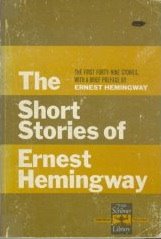 Somewhere in the middle of Philip K. Dick's The Man in the High Castle, I started thinking about LOST. I know, weird, right. And I started to get a little scared. Will it be possible for me to ever read a book again and not think about the crazy interconnected web of characters the TV show has made pop culture?
Somewhere in the middle of Philip K. Dick's The Man in the High Castle, I started thinking about LOST. I know, weird, right. And I started to get a little scared. Will it be possible for me to ever read a book again and not think about the crazy interconnected web of characters the TV show has made pop culture?Thankfully, I can safely say, yes. Even after fleeting moments of similarity, I was able to dissociate myself from the TV show I call my favorite and read the book for what it is: a blistering alternate reality story with sensational ideas and philosophical puzzles that are plenty of fun and interesting in their own right.
And even though there are several interconnecting stories tightly weaved throughout this book (some more than others), that was the only similarity to LOST, and it really wasn't much of a similarity as it goes in telling story. (The convention is not new, even pre-Pulp Fiction).
What I'm trying to say, though not well (it's Sunday, the end of a three day weekend, that's my excuse) is that The Man in the High Castle stands quite well on it's own, and though it may not completely hold up after a few decades, I can see why Dick is a master of his form. He has this way of taking a story and elevating it by keeping everything real, down to the smallest details.
It's in the 1960s, twenty years after World War II, Japan controls the western portion of what's formerly known as the United States, Germany the Eastern. Everyone uses the I Ching, and Germany has become a dominant technological force. There is a new caste system, with new leaders, and new slaves, and the world is a different place. Of course, it should be. But what Dick does well is imagine a world rooted in our own, so that nothing is outrageous, so that I, the reader, can buy his alternate reality, delve into it, get wrapped into it, and go completely crazy with his storytelling by the end of the novel.
I enjoyed this book, though it wasn't one of my absolute favorites. I found parts of the novel tedious but was rewarded in others with exceptional writing and a plot conceptualized by a fantastic mind. The alternate reality of the novel is enough on its own, but Dick adds into the mix a good bit of philosophy, current affairs, and religion to make things even more interesting. And then he proceeds, as all great writers should, to confuse the living piss out of you.
Read this book. You'll feel better about yourself.


No comments:
Post a Comment